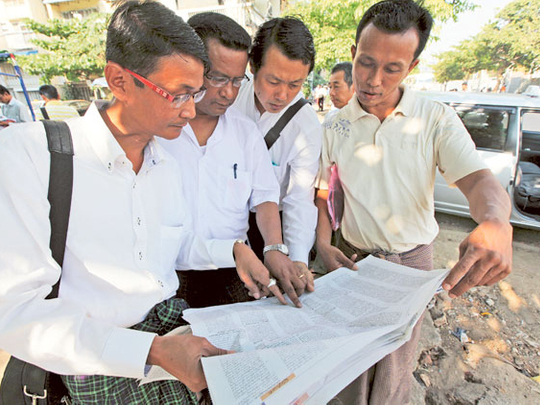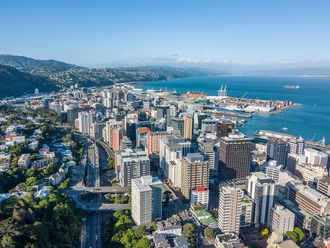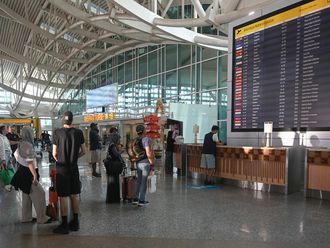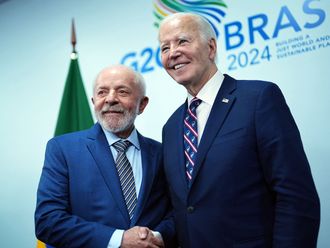
Yangon: Myanmar police used phosphorus in a crackdown on a rally against a copper mine last year, injuring dozens of protesters including monks, a parliamentary report led by Aung San Suu Kyi said on Tuesday.
The probe on the November clampdown, the most violent since the reformist regime took power in early 2011, called for reform of authorities’ riot control methods after more than 100 people were hurt.
Injuries sustained by monks and civilians caused a wave of outrage across Myanmar, sparking further protests and leading to an official apology to senior clerics.
The report found “unexpected and unnecessary burns” were inflicted as “the police used smoke bombs without knowing what their effect would be”, adding that the devices contained phosphorus, which “can cause fire when they explode”.
However, the report led by the opposition leader backed continued work at the controversial Chinese-backed mine in Monywa, northern Myanmar, despite conceding that it only brought “slight” benefits to the country.
The recommendation is likely to anger local people who have mounted fierce opposition to the project — a joint venture between Chinese firm Wanbao and military-owned Myanmar Economic Holding — over environmental concerns and allegations of land-grabbing.
Suu Kyi is due on Wednesday to visit the mine and a number of nearby villages and “might spend a night in Monywa town to meet with local people there”, a member of her security staff said, requesting anonymity.
Following the report’s release the government announced on Tuesday that a committee had been formed to implement its recommendations, with the panel to include the home affairs, mining and environmental conservation ministers.
Resentment
Myanmar, ruled for decades by a brutal junta, has recently seen waves of protest against land grabbing across the country as disgruntled rural people test the new government’s proclaimed commitment to freedom of expression.
Chinese-backed projects to tap the nation’s abundant natural resources have sparked particular resentment.
The report, which was delivered to Myanmar’s reformist president on Monday, said the protests were a result of “poor transparency” from local officials, adding that the compensation offered for land “was not at market value”.
It recommended several measures be undertaken at the mine, which has been suspended since the crackdown because of continuing local opposition.
These include an increase in compensation for land in line with market value, the carrying out of environmental and social impact assessments and finding ways to create local employment.
It said the mine had appropriated more land than was needed and should return some of it to local people.
Suu Kyi’s parliamentary investigation found that the mine operators would no longer be paying the government the full contractual 16.8 per cent of production profits, as an eight per cent commercial tax had since been axed.
The scrapping of the tax leaves Myanmar to collect just 8.8 per cent of the operation’s profit.












